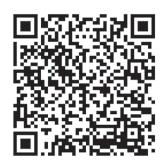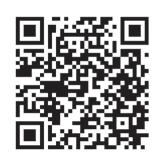HealthyHeart, HealthyYou.
Heart health is important at every age.
One of the many ways to improving your heart health is controlling your blood pressure. High blood pressure, or hypertension, is a major risk factor for heart disease and stroke. Nearly one in four adults aged 20 to 44 have high blood pressure.
Blood pressure is measured using two numbers: The first number, called systolic blood pressure, measures the pressure in your arteries when
your heart beats. The second number, called diastolic blood pressure, measures the pressure in your arteries when your heart rests between beats. If the measurement reads 120 systolic and 80 diastolic, your doctor will say “120 over 80” or write “120/80 mm Hg.”
Did you know?
High blood pressure is sometimes called the “silent killer” because many people don’t know they have it. In fact, most people with high blood pressure don’t have any symptoms and report “feeling fine.” Getting your blood pressure checked is the only way to know if it’s high.
Blood pressure readings below 120/80 mm Hg are considered normal. However, it can vary from one individual to another depending on a variety of factors.
At your next visit, ask your health care team what your blood pressure is, what the numbers mean, if they are too high, and how often you should have it checked. If you are diagnosed with high blood pressure, stick to your treatment plan, and follow your health care team’s advice.

LIVE TO THE BEAT
Small lifestyle changes, including reducing sodium, not smoking, lowering stress, and being more active can have a positive impact on your heart health.
Live to the Beat is a free online program that can help you get started, based on your individual priorities. No ma�er where you are in your current journey, these step-by-step guides can help you meet your goals and make changes toward be�er heart health.

Customize your journey at pulsecheck.livetothebeat.org.



HEALTH NEWS AND TIPS FROM SABAN COMMUNITY CLINIC VOLUME 1, ISSUE 1
Committed to providing a comfortable and trauma-free visit, Dr. Luke uses advanced techniques and treatment approaches to help children transition into cavity free adults who aren‘t afraid of visiting the dentist anymore.
TIPS FOR GOOD HABITS AND A HEALTHY SMILE.
Brush your teeth twice a day with fluoride toothpaste.
• Brush for at least two minutes each time.
• Replace your toothbrush every six months.
Clean between your teeth daily.
• String floss or flossing picks can be used to clean between your teeth.
• They help remove food and stimulate blood flow to your gums.
Eat healthy foods and avoid sugary beverages.
• Fruit juices are considered sugary beverages — water is always the best choice.
• Try coconut water or 100% juice (no more than 4 oz a day) as alternatives.
Meet our Pediatric Dentists
Passionate about disease prevention, Dr. Bell readily supports families with tools to maintain good oral health through pregnancy, childhood, and adulthood.


See your dentist at least twice a year.
• Twice a year cleanings and exams are important for maintaining good dental health
• Dental coverage is available for all children. If your child needs dental insurance, our Enrollment Specialists can get you get started. Make an appointment today!
• Chat with us online

• Call us at 323.653.1990
• Log into MyChart
YOU KNOW?
These healthy foods help your teeth stay strong:
• Yogurt and cheese
• Carrots, celery, and leafy greens
• Apples
• Black and green tea
• Nuts
Dr. Lucas “Luke” Nicholaou
Dr. Zarina Bell
Keeping our children mentally healthy
Dr. Daniel Waldman, Child, and Adolescent Psychiatrist at Virgil Family Health Center, knows it can be challenging to really understand what is going on with your child. Between growing educational and extracurricular demands to social media concerns and bullying, it can be difficult to uncover what your child is thinking and how they are feeling. Dr. Waldman suggests that starting a meaningful conversation is an important tool to help kids “develop a language to identify what is going on and what they’re feeling. This gives children the opportunity to problem-solve.”

Here are a few tips to start meaningful conversations with your child:
1. Ask open-ended questions
Start with simple questions that have an easy answer, and don’t settle with “yes” or “no.” Follow up with open-ended questions so your child can begin connecting the dots between their thoughts and emotions.
2. Focus on positives
Keep questions positive and focused on strengths. Specifically, identify and reflect on the actions the child took to make their day better. This builds confidence, problem-solving skills, and helps your child recognize that their choices can make a big difference.
3. Use conversation cards to enable choice
Write down things you consistently want to check in about and a few fun questions. You can make a set of ten index cards or use this QR code for templates. Your child gets to choose the card so they can focus on the topic they feel comfortable talking about. If a parent also answers the question and models talking about their emotions, it can be impactful.

Getting your kids to open up
EXAMPLE QUESTIONS:
Did you have math class today? On a scale of one to five, how did it go?
Ready for summer break? What’s one thing you’re looking forward to?
I’m glad you had fun at practice. Has working on your skills made practice more enjoyable?
What made you smile today?
CHECK-IN QUESTION:
What are three things that you’re proud of?
FUN QUESTION:
If a genie granted you three wishes, what would they be?
If your child has shared a mental health concern and you need more support, the Clinic offers behavioral health services for children, adults, and families. Contact your pediatrician for more information. If you need immediate assistance, call 988 for mental health crisis support or go to your local emergency room.
ASKA DOCTOR
DR. DANIEL WALDMAN PEDIATRIC PSYCHIATRIST
DON’T LET HIV AFFECT YOU OR YOUR FAMILY


Keep yourself and all your sexual partners safe with one pill a day.
PrEP is a safe, effective pill you take once a day to prevent HIV infection. Sign up for our free two-week trial and take advantage of our affordable, on-going prescription. Being PrEPared has never been easier.


The Diamond Club
It’s never too late to have fun and live your best life.
The Diamond Club is free for Saban patients and their guests (ages 65+). Program includes:
• Exercise and dance classes
• Nutrition workshops
• Monthly birthday celebrations
• Sexual health workshops
• Semi-formal dances and special events






• Games, snacks, and raffles at every gathering
All events will be hosted in person, in English and Spanish.
Sign up today.
patientevents@sabancommunityclinic.org
323.330.4010



To request an appointment, log in to MyChart:
Our locations:
Beverly Health Center 8405 Beverly Blvd., Los Angeles, CA 90048
S. Mark Taper Foundation Health Center 6043 Hollywood Blvd., Los Angeles, CA 90028
Additionally, you can call us at 323.653.1990 or chat with us at sabancommunityclinic.org

The Wallis Annenberg Children & Family Health Center 5205 Melrose Ave., Los Angeles, CA 90038
Virgil Family Health Center 137 N. Virgil Ave., Los Angeles, CA 90004
Satellite Clinic at The Center 6636 Selma Ave., Los Angeles, CA 90028
@sabanclinic
sabancommunityclinic.org

AROUND THE CLINIC

























